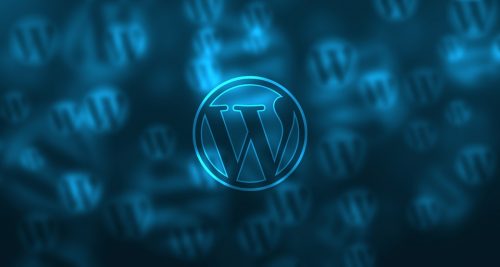What is WordPress Project Gutenberg?
Gutenberg is more than an editor. While the editor is the focus right now, the project will ultimately impact the entire publishing experience including customization (the next focus area). Gutenberg looks at the editor as more than a content field, revisiting a layout that has been largely unchanged for almost a decade. This allows us to holistically design a modern editing experience and build a foundation for things to come.
Here is the link to get more information on the Gutenberg plugin.

Accessibility in Gutenberg
There is an accessibility team which provides accessibility expertise across WordPress to improve the accessibility of WordPress core and resources. The WordPress Accessibility Coding Standards states that all new or updated code released in WordPress must conform to the WCAG 2.0 guidelines at level AA. This is a good standard and an industry best practice.
However, this standard does not seem to be followed within Gutenberg. How accessible is Gutenberg in its current state (version 2.4)? The internal WordPress Accessibility team set up a list of minimum requirement, did code reviews and research, gave recommendations and set up user tests. Here is their short answer –
- Gutenberg still needs extensive work to meet basic standards, like keyboard accessibility and semantics.
- Especially for screen reader users, Gutenberg as it stands right now is a dramatic step back in usability.
- There is a need to write a manual/documentation for assistive technology users.
The article Accessibility in Gutenberg – state of play written by Rian Rietveld focuses on the current state of Gutenberg accessibility.
Accessibility
Tim Berners-Lee, W3C Director and inventor of the World Wide Web says the power of the Web is in its universality. Access by everyone, regardless of disability, is an essential aspect.
The Web is fundamentally designed to work for all people, whatever their hardware, software, language, location, or ability. When the Web meets this goal, it is accessible to people with a diverse range of hearing, movement, sight, and cognitive ability.
The impact of disability is radically changed on the Web because the Web removes barriers to communication and interaction which many people face in the physical world. However, when web sites, applications, technologies, or tools are badly designed, they can create barriers that exclude people from using the Web.
Accessibility is essential for developers and organizations that want to create high quality websites and web tools, and not exclude people from using their products and services.
There are problems the accessibility team encountered as they tried to make the Gutenberg editor experience more accessible. The accessibility team lead of WordPress has resigned. The code base of Gutenberg is difficult to modify because no one in the WordPress accessibility team is a skilled React developer. So it was hard to implement changes. A lot of accessibility work has been done by the Gutenberg team but major issues still exist.
Another problem is that there was no React developer with accessibility experience in the community, and no React accessibility experts from outside the community were willing to work on the issues for free.
Rian Rietveld’s post – I have resigned as the WordPress accessibility team lead. Here is why explains more about some of the problems regarding accessibility.
Brad Frost provided another article about the accessibility in WordPress and why the WordPress accessibility team resigned.
Accessibility in Websites should be a core requirement
Since WordPress powers a significant number of websites (32% according to this WordPress statistics site), WordPress should be a leader with established best practices and web standards. Certainly, one can still use the classic editor (as a plugin) once Gutenberg is released, but that is only a temporary work around. How long will this classic editor survive? For those who need a refresher on accessibility, we offer the following resources/ reminders.
- Authoring Tool Accessibility Guidelines (ATAG) Overview
- https://www.w3.org/standards/webdesign/accessibility
Project Gutenberg is scheduled for release on November 19. As a professional organization, we are very concerned that significant accessibility problems remain just before the official launch. We have been a proponent of web standards (including accessibility) for over 2 decades and find this approach troubling. We understand the need to improve WordPress to remain competitive in the marketplace. However, this should not be achieved with a loss of accessibility in the process. Since this project is a foundation for future enhancements to WordPress, accessibility issues must be addressed (and addressed soon).
What are your thoughts about Project Gutenberg and accessibility? We look forward to your comments.
